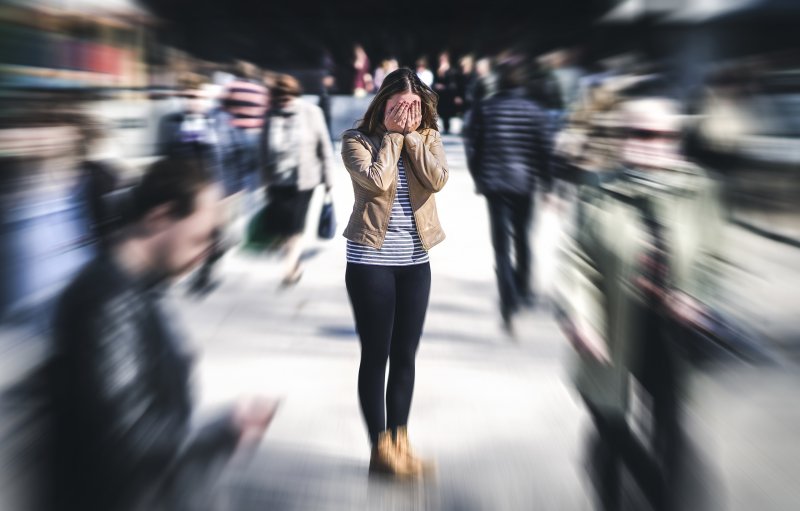
It is estimated that approximately 22 million Americans are suffering from sleep apnea. This number is rising every year as more and more people are being diagnosed. Similarly, anxiety is on the rise. While it’s normal to have a certain amount of anxiety as a response to stress, higher levels of anxiety can become a problem. What many people don’t know is that these two conditions can sometimes be related. Continue reading to learn how.
What Is the Connection Between Sleep Apnea and Anxiety?
People who have sleep apnea and anxiety often find themselves in a reoccurring loop of each condition worsening the other. For instance, during a sleep apnea episode, the brain receives a “panic signal.” This causes your body to jolt awake and resume breathing. When this occurs throughout the night, you don’t reach all the necessary sleep stages for a good night’s rest. When you are lacking quality sleep, this makes it more difficult for your brain to cope well with stressful situations. Over time, this increase in stress and anxiety can increase your heart and blood pressure rates, leading to additional issues.
How Can Treating Sleep Apnea Reduce My Anxiety?
If your anxiety is being worsened by sleep apnea, taking steps to treat your sleep disorder can ultimately help to reduce your anxiety over time. CPAP works well for some people by constantly pumping air into the airway during sleep. However, others find this method uncomfortable and prefer a more conservative method – oral appliances. An oral appliance is worn at night and works by repositioning the lower jaw, therefore preventing the airway from being blocked.
By keeping the airway open throughout the night, the number of times one wakes up throughout the night is significantly reduced. This means more quality sleep which can lower anxiety levels during the day.
How Else Can I Get a Good Night’s Sleep?
In addition to seeking treatment for your sleep apnea, there are other steps you can take to get the quality sleep you need to thrive during the day. Here are some tips:
- Have a Schedule: Try to go to bed at the same time each night and get up at the same time – including the weekends.
- Comfortable Setting: Make sure your bedroom is quiet, dark, relaxing, and at a cool, comfortable temperature.
- Unplug: Avoid watching TV, looking at your computer, or scrolling through your phone right before bed.
- Exercise: When you are getting plenty of exercise during the day, it becomes easier to fall asleep at night.
- Mindful Eating and Drinking: Avoid eating large meals, having caffeine, or consuming alcohol too close to bedtime.
- Seek Anxiety Treatment: If you feel like your anxiety is keeping you up at night, bring this up to your doctor. This way, you can discuss different methods to bring down your anxiety levels.
Sleep apnea and anxiety go hand in hand, so it pays to get the treatment you need. By getting quality sleep during the night, you can reduce your anxiety and function better during the day.
About the Author
Dr. Jeff Rodgers has been in private practice for over 20 years and specializes in dental sleep medicine. Currently, he is a Diplomate of the American Board of Dental Sleep Medicine (ABDSM) and the American Sleep and Breathing Academy (ASBA). Dr, Rodgers is a board-certified sleep expert and treats patients who suffer from sleep-breathing disorders at his practice in Dunwoody. To learn more about sleep apnea or to schedule an appointment, visit his website or call (770) 394-4310.
